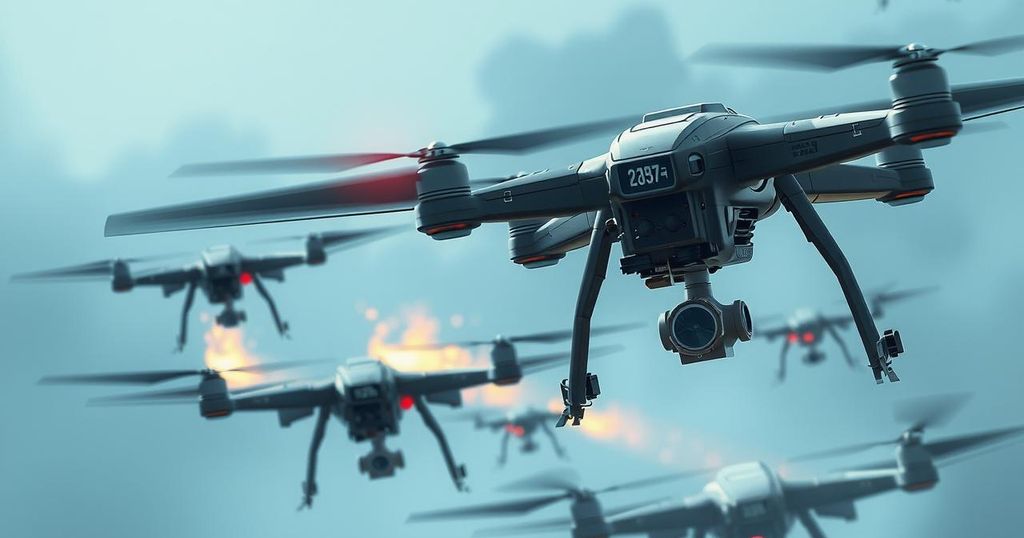Artificial Intelligence on the Frontlines: Israel’s Advanced Warfare Tactics with Hamas
A recent report reveals the Israel Defense Forces (IDF) increasing reliance on artificial intelligence for precision strikes against Hamas, aiming to minimize civilian casualties. Key operations, like the targeted elimination of Ibrahim Bayari, highlight the integration of AI in intelligence processes. The IDF emphasizes a commitment to responsible technology use, contrasting its approach with past conflicts in terms of civilian harm.
Amid the ongoing clash with Hamas, Israel’s military strategy is taking a digital leap with AI integration. A recent Kan News report, echoing findings from The New York Times, dives into how the Israeli Defense Forces (IDF) have leaned heavily on artificial intelligence to enhance both combat accuracy and minimize civilian casualties. It’s a stark contrast to conflicts like those in Ukraine, where the toll has been significantly higher.
The spotlight shines on a significant moment in late October 2023. An airstrike in Jabalia led to the take-down of Ibrahim Bayari, a notorious Hamas figure tied to the grim October 7 events. While initial intel couldn’t pinpoint Bayari’s position, AI swooped in, analyzing intercepted calls and surrounding sounds—like nearby explosions—to assess where he was likely hiding, leading to an effective strike that left its mark on the region.
Officials stress that modern warfare—especially one that strives to protect innocent lives—simply cannot move forward without AI. One expert made a striking comparison: surgeries a century ago were performed with blunt instruments. Today, we wouldn’t trust a surgeon using those outdated methods. Similarly, today’s battlefield needs technological precision, a need catered to by advanced AI systems.
The report also reveals AI’s multifaceted role within IDF operations. From identifying hostages to applying facial recognition through cameras scattered across Gaza, these tech tools are adding layers to intelligence. Engaging tools similar to GPT offer a way to sift through vast Arabic-language social media data, effectively categorizing and analyzing streams of information. An AI system, playfully named “Lavender,” is said to have pinpointed thousands of potential targets via data analysis, showcasing just how substantial AI’s role has become.
Much of this innovation springs from IDF’s renowned intelligence Unit 8200, known for its tech-savvy soldiers. Inside an innovation hub dubbed “The Studio,” reservists and active personnel—including folks from giants like Google, Microsoft, and Meta—collaborate to push military tech boundaries. This fusion of military and industry expertise is turning strategies into sharply focused operations that strive to limit “collateral damage,” or civilian harm.
Analyses suggest Israel’s approach has led to a decreased number of civilian casualties compared to other recent conflicts, marking a significant departure from the wider devastation seen elsewhere. In response to scrutiny from The New York Times, the IDF affirmed its commitment to using technology within legal frameworks. Google noted that while they do have reservists serving in various military roles, their civilian responsibilities are separate. Meanwhile, both Meta and Microsoft opted not to respond to requests for comment.
This tightrope walk of military operations and AI development showcases the changing face of warfare and the increasing reliance on technology to inform and direct military action in an era where the stakes—especially human lives—are incredibly high.
In summary, Israel’s integration of AI into military operations reflects a shift towards precision warfare, aiming to minimize civilian casualties while maximizing operational effectiveness. The IDF’s reliance on advanced technologies signifies not just the future of combat strategy, but challenges traditional methods of warfare, potentially rewriting the rulebook on how conflicts may be managed in the digital age.
Original Source: allisrael.com




Post Comment